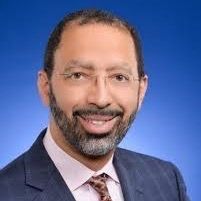- Safety & Recalls
- Regulatory Updates
- Drug Coverage
- COPD
- Cardiovascular
- Obstetrics-Gynecology & Women's Health
- Ophthalmology
- Clinical Pharmacology
- Pediatrics
- Urology
- Pharmacy
- Idiopathic Pulmonary Fibrosis
- Diabetes and Endocrinology
- Allergy, Immunology, and ENT
- Musculoskeletal/Rheumatology
- Respiratory
- Psychiatry and Behavioral Health
- Dermatology
- Oncology
FDA Grants Priority Review for Novel Immunotherapy for Follicular Lymphoma
If approved, mosunetuzumab could be the first T-cell engaging bispecific antibody for the treatment of any type of non-Hodgkin’s lymphoma. The FDA has assigned a PDUFA date of Dec. 29, 2022.
The FDA has accepted the Genentech’s biologics license application and granted priority review for mosunetuzumab for the treatment of adults with relapsed or refractory follicular lymphoma who have received at least two prior systemic therapies. The FDA is expected to make a decision by Dec. 29, 2022.
Follicular lymphoma is the most common slow growing form of non-Hodgkin’s lymphoma, a type of blood cancer. Mosunetuzumab is a potential first-in-class bispecific antibody. It is designed to target CD20 on the surface of B cells and CD3 on the surface of T cells. This redirects a patient’s existing T cells to release cytotoxic proteins into the B cells.
The European Commission granted conditional marketing authorization in June 2022 for mosunetuzumab, marketed as Lunsumio, for this indication.
Levi Garraway, M.D., Ph.D.

“New therapeutic options are needed for follicular lymphoma, which often relapses after initial therapy and becomes increasingly difficult to treat each time it returns. Clinical trial results have demonstrated durable responses with mosunetuzumab in advanced follicular lymphoma, representing a step toward shifting the treatment paradigm,” Levi Garraway, M.D., Ph.D., chief medical officer and head of global product development at Genentech, said in a press release.
The submission is based on positive results from the pivotal phase ½ GO29781 study of mosunetuzumab, which showed high complete response rates, with the majority of responders (57%) maintaining responses for at least 18 months, and manageable tolerability in people with heavily pretreated follicular lymphoma. After a median follow-up of 18.3 months, the complete response rate was 60% and the objective response rate was 80%. The median duration of response among those who responded was 22.8 months.
The most common adverse event was cytokine release syndrome, which was generally low grade, and all events resolved. Other common adverse events included fatigue, headache, neutropenia, fever and hypophosphatemia. Results were presented for the first time in December 2021 at the 63rd American Society of Hematology (ASH) Annual Meeting & Exposition.
Studies of mosunetuzumab are ongoing with two phase 3 studies, including CELESTIMO investigating mosunetuzumab plus lenalidomide in second-line follicular lymphoma, and SUNMO, investigating mosunetuzumab plus Polivy (polatuzumab vedotin) in second-line diffuse large B-cell lymphoma.
Polivy, also developed by Genentech, was granted accelerated approval by the FDA in June 2019. It is a first-in-class antibody-drug conjugate that specifically targets CD79b, a protein expressed in the majority of B-cells. It was approved for use in combination with bendamustine plus Rituxan (rituximab) for the treatment of adults with relapsed or refractory (R/R) diffuse large B-cell lymphoma
FDA Issues Complete Response Letter for Pz-Cel to Treat Epidermolysis Bullosa
April 22nd 2024Prademagene zamikeracel is a cell therapy designed to incorporate the functional collagen-producing COL7A1 gene into a patient’s own skin cells. The FDA is asking for additional information on manufacturing practices.
